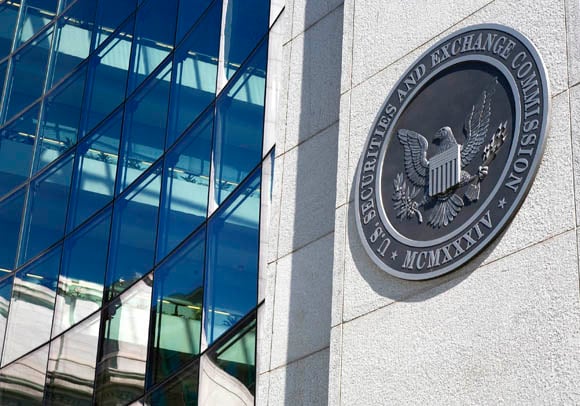Officials at the Securities and Exchange Commission are considering setting limits on computer-trading algorithms — and may choose to require broker-dealers to monitor their orders — in the wake of the May 6 flash crash.
The agency, however, won’t go as far as restricting or banning the use of limit orders for securities and exchange-traded funds, said David Schillman, associate director of the SEC Division of Trading and Markets, who spoke today at an Investment Company Institute conference in New York.
After investigating the causes of the May 6 flash crash, which caused the market to plunge 800 points in a matter of minutes, the SEC and Commodity Futures Trading Commission found that one mutual fund company’s use of a computer algorithm caused the drop.
As a result, the SEC is discussing how the ways broker-dealers could set up systems to vet these algorithms, Mr. Schillman said. However, the agency isn’t looking at “heavily regulating” these trades, but rather establishing processes to prevent “extreme actions” that are the result of unintended orders, he said.
“We are looking to protect against the most extreme incidents,” he said.
The Financial Industry Regulatory Authority Inc., in its examinations of Wall Street firms, has seen instances where there are “weaknesses” in how algorithms are being implemented, said John Malitzis, executive vice president of market regulation for Finra.
Many industry officials have also pointed to the use of market orders, by which investors buy and sell a security at the best available price at a given moment, as a culprit in the flash crash. Firms, such as
The Vanguard Group Inc., have lobbied regulators to ban or restrict market orders in favor of limit orders, by which investors can specify at what price they want to buy or sell a security
“Vanguard believes that the elimination of market orders on ETFs would afford a level of protection to investors,” said Martha Papariello, principal and head of the company's financial adviser services and ETF product management.
At the very least, firms such as Vanguard would like regulators to mandate that broker-dealers set limit orders as the default for investors when placing trades. Vanguard has recently changed its online brokerage interface to do this, Ms. Papariello said.
But the SEC sees such a move as being too restrictive, Mr. Schillman said in comments to
InvestmentNews after his panel discussion. “I doubt we would be that prescriptive,” he said.
The agency is discussing issuing guidance on what kind of information firms should provide to investors about the use of limit orders and market orders, he said. “There is room for education,” he said.







